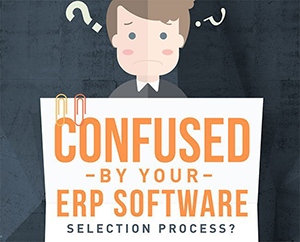
About to Start Implementing
SAP Business One?
Consider These Questions Before You Get Started
- Internal skill set – Most SAP Business One customers do not have an internal IT department. For most SAP Business One customers the Finance Manager doubles up as a SAP Business One Super User. Even though you might not be able to put an enormous amount of resource onto your SAP Business One implementation it is still important to assess the skill set that you have available. Has anyone in your organisation previously implemented an ERP solution? Are users familiar with your data? Are employee’s confident users of MS Excel? Do users have time available for user acceptance testing? The answers to these questions will help get an understanding of how much external resource you will require when implementing SAP Business One and will also influence the methodology you choose. The less internal resource you can provide as part of an implementation the more likely that you will need a well scoped implementation that follows a fixed price. The more skill set that you can provide to the implementation, the less time that an SAP Business One partner will need to spend on implementation and support.
- Project management – How strong is your internal project management skillset and what level of project management is your SAP Business One reseller going to provide? In reality, no matter which implementation methodology you choose, strong project management (both from the customer and the SAP Business One partner) is essential.
- Company culture – Does your company have a culture of being hands on or of outsourcing? If you have a more hands on approach you will be able to reduce your implementation investment and will streamline on-going support.
- Current process and structure – How well documented are your current procedures and structures. Are there good “manual processes” in place that can be automated through the implementation of SAP Business One? Well structured “manual” processes are easier to automate through the implementation of a business management solution.
- Size of existing business – Simply put, how big is your business? Larger businesses will have more stake holders, more requirement for internal communication and more detailed project management. Smaller businesses implementing SAP Business One can get away with a slightly less structured or more informal approach to implementation.
- Budget – Budget will have an influence on implementation methodology that you choose. There are multiple aspects that have an effect on budget requirements:
i. Your internal skill set
ii. Project management requirements
iii. Functional requirements
iv. Cloud vs on premise
v. Geographical location
- Functional requirements – The simpler the requirements the easier the implementation and there is likely to be less pressure on the implementation methodology and team.
- Timing – How much pressure is there to get SAP Business One implemented by a certain date and how realistic is that go live date?
- Data – Have you defined your data conversion strategy? What format and in what applications does your data currently reside?
- Reporting – Have you clearly defined your reporting requirements? Do the standard SAP Business One reports meet your reporting requirements and is some additional user specific reporting required.
Some practical questions to answer as you embark on implementing SAP Business One.








Leave A Comment